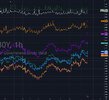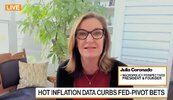- Joined
- 15 June 2023
- Posts
- 1,160
- Reactions
- 2,530
That's a million dollar question in an answer of opinion in a 10 page essay form.The question(s) to ask with any of this stuff is why
Basically, in a simple form it's supply and demand, but without surplus money in the economy, prices can't reach new heights.







